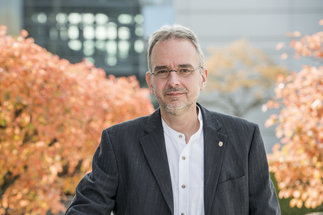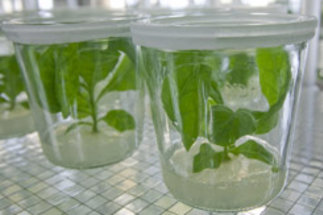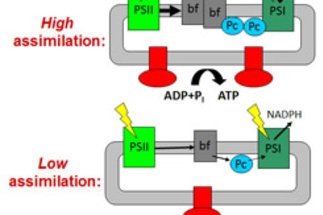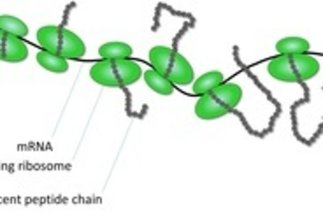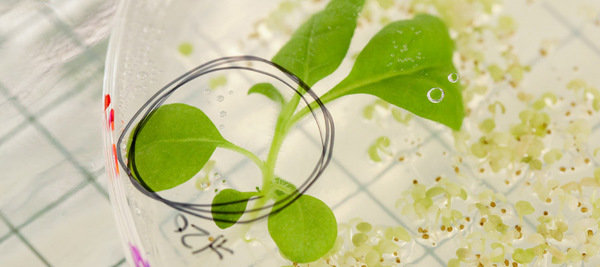
Organelle Biology, Biotechnology and Molecular Ecophysiology
Research in the Department of Professor Dr Ralph Bock focuses on the biology of the two DNA-containing cell organelles in plants, plastids (chloroplasts) and mitochondria, and their integration with the nucleocytosolic compartment.
The overarching scientific question addressed by the research groups in the Department is:
How do the genetic systems of plastids and mitochondria function, and how do they co-operate with the nuclear genome to facilitate coordinated genetic and physiological responses to changing environmental conditions and developmental programs?
Groups in the Department study the mechanisms and regulation of organellar gene expression at all levels (from transcription to protein complex assembly), the communication of organelles with the nucleus (anterograde and retrograde signalling pathways), the bioenergetic pathways residing in chloroplasts and mitochondria (photosynthesis and respiration), and their integration into the biochemical networks of the cell and the physiology of the whole plant.
The new knowledge acquired about gene expression and its control in both the organelles and the nucleus is continuously integrated into the Department’s applied research projects in genetic engineering, experimental genome evolution, biotechnology and synthetic biology.
The main model organisms currently used in the Department’s research are Arabidopsis, tobacco and other Solanaceous species (tomato, potato), the model green alga Chlamydomonas reinhardtii, the unicellular red alga Porphyridium purpureum, coccolithophorid algae and evening primroses (genus Oenothera). Ongoing research work employs a wide spectrum of cutting-edge technologies, including genomic, transcriptomic, proteomic, and metabolomic techniques. In addition, new tools and technologies for transgenic research, synthetic biology and systems biology in plants and eukaryotic algae are developed and made available to the scientific community.
